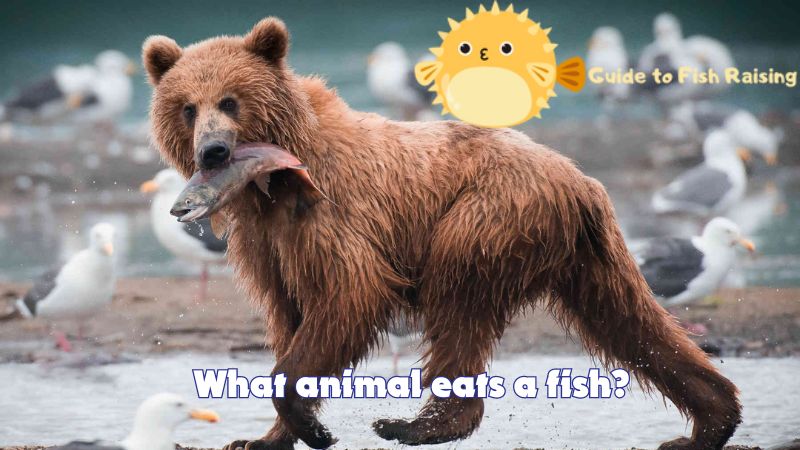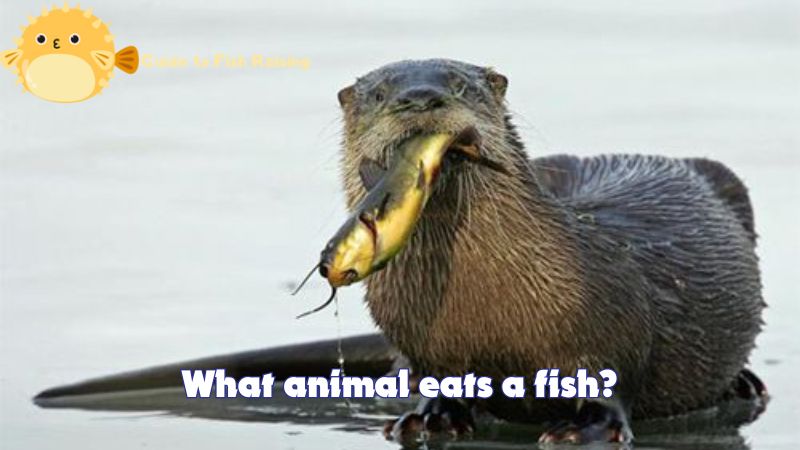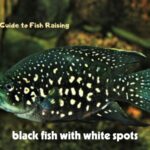Fish is a popular and nutritious food source, an important source of energy for many animals. From seagulls to penguins, there are many animals that rely on fish to survive. What animal eats a fish? Some species, like otters, are almost completely dependent on fish.
Although some species hunt in the open ocean, others lurk in the dark, waiting for an opportunity to attack unsuspecting fish. Each species has its own unique and specific hunting techniques. Let’s answer with fishtankenthusiast.com what animal eats a fish?
Benefits of Fish as Food
Fish is a valuable food source and brings many benefits to animals. First, fish is very nutritious, providing protein, omega-3 fats, vitamin D and minerals such as iodine and selenium, which help improve health and strengthen the immune system of animals. Second, fish is easier to digest than red meat, making it easier for small animals to consume and absorb nutrients from them. Finally, fish is an abundant food source, many fish species have rapid and abundant reproduction rates, creating a sustainable food source for many animals in nature. Thanks to these benefits, fish play an important role in the food chain and the balance of the ecosystem.
What animal eats a fish? 11 popular fish species
Here are 11 interesting animals that eat fish and their different ways of hunting.
1. Killer Whale
Scientific name: Orcinus orca
Characteristics: Killer whales, also known as killer whales, are one of the largest members of the dolphin family. They can grow up to 32 feet long and weigh more than six tons.
Diet: Salmon, herring and mackerel. In addition, they hunt sea lions, penguins, seals and even large whales.
2. North American Otter
Scientific name: Lontra canadensis
Characteristics: North American otters are mischievous semi-aquatic animals, often appearing near freshwater streams, lakes and rivers. They are excellent swimmers with elongated bodies and webbed feet.
Diet: Mainly fish, shrimp, frogs, and small animals. With a high metabolic rate, otters need to eat regularly and consume up to 15% of their body weight each day.
3. Brown Bear
Scientific name: Ursus arctos
Characteristics: Brown bears live in many parts of the world, including North America, Europe and Asia. They are famous for their ability to smell and run at speeds of up to 35mph.
Diet: Salmon and trout. Brown bears can eat up to 90 pounds of fish a day.

4. Penguin
Scientific name: Spheniscidae
Characteristics: Penguins are flightless birds, mainly living in the Southern Hemisphere. There are 18 different species of penguins, from the tiny blue penguin to the four-foot-tall emperor penguin.
Diet: Fish, squid and krill. They can swim at speeds of up to 22 miles per hour.
5. Great Blue Heron
Scientific name: Ardea herodias
Characteristics: This large bird often appears near freshwater bodies such as swamps, ponds and lakes. They are talented hunters and use many methods to catch fish.
Diet: Small fish such as minnows, small carp, goldfish and salmon. They also eat snakes, frogs and rodents.
6. American Alligator
Scientific name: Alligator mississippiensis
Characteristics: American alligators are large reptiles, often living in swamps and freshwater swamps. They can lie motionless in the water for long periods of time, waiting for prey.
Diet: Fish, turtles, snakes, mammals and birds. When eating, they can consume up to 37 pounds of food in one meal.
7. Bald Eagle
Scientific name: Haliaeetus leucocephalus
Characteristics: Bald eagles are large birds of prey, often appearing near freshwater lakes and rivers. They have sharp claws and beaks to catch fish.
Diet: Small fish such as salmon and trout. They also eat small animals such as rabbits and rodents.
8. Osprey
Scientific name: Pandion haliaetus
Characteristics: Ospreys are birds of prey that eat large fish. They live on every continent except Antarctica and often hunt near bodies of water such as lakes, rivers and coastlines.
Diet: Fish. They often eat the most common fish in their living area.
9. American Gull
Scientific name: Larus smithsonianus
Characteristics: American gulls are birds of prey, mainly eating fish. They use their beaks to catch fish from the water.
Diet: Fish, marine animals such as crustaceans and squid. They also eat food scraps on beaches and harbors.
10. American Mink
Scientific name: Neovison vison
Characteristics: The American mink is a small carnivore, living in North America. They are good swimmers and often hunt fish, frogs and crustaceans in streams, rivers and lakes.
Diet: Fish, small animals such as rodents and rabbits.
11. Leopard Seal
Scientific name: Hydrurga leptonyx
Characteristics: Leopard seals are large marine animals that live in the waters around Antarctica. They are famous for their flexibility and ability to swim quickly.
Diet: Fish, squid and krill. They also hunt penguins and other seals.
Conclusion
Fish-eating animals have special hunting skills and each species has its own approach to catching fish. These skills help them survive and thrive in diverse habitats. Understanding these species is not only interesting but also helps us better understand biodiversity and complex relationships in nature.





